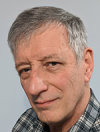This newly updated Academy covers diesel engine engineering principles relevant to the development, application, engine control and exhaust emission control of diesel engines for the next decade. The course will address how and why the engine that ¿powers the world¿ will continue to be relevant in the age of electrification including how electrification may benefit the diesel engine and its application. Course subject material will cover thermodynamic principles, combustion, modeling, in cylinder and aftertreatment exhaust emission control, diesel noise control, fuel injection systems, turbocharging/boosting, on-board diagnostics, lubricants and fuel requirements, and diesel engine applications. Evolving trends in the subject matter as well as new or revised innovative architectures and hardware will be addressed. It is an intensive learning experience comprised of lecture and structured practical sessions.
Hundreds of professionals from across Europe, Asia, and the Americas have benefited from the SAE Diesel Engine Technology Engineering Academy. This Engineering Academy has been the source for comprehensive diesel engine technology training. Professionals from companies like Infineum, Ford Motor Co., AVL, MAHLE, Robert Bosch, Komatsu, John Deere, BorgWarner, Eaton, Shell, Volvo, and numerous others have looked to SAE and the Diesel Engine Technology Engineering Academy for this technical training.
Practical Component
This Academy includes several practical activities, including team-based case studies or discussions, a technical tours and guest speakers. The course will be taught by a team of highly experienced professionals from industry and academia and led by an experienced engineer with a full and broad career in the diesel industry sharing experience and practical insight.
***Depending on the location of the Academy, please be advised this course may involve one or more of the following: driving and/or riding in a vehicle; participating in a vehicle demonstration; and/or taking part in an offsite tour using outside transportation. You may be required to sign a waiver on-site and produce a valid driver's license from your state/country of residence.***
Featured Technical Tours
This Academy will feature two technical tours where students will experience and reinforce lessons learnings in the classroom. Featured tours will be as follows:
Robert Bosch LLC
Robert Bosch LLC facility in Farmington Hills, MI will host a tour of their facilities where they perform advanced diesel fuel injection systems research. The tour will include the fuel-injection lab and engine dyno area. Students will experience live demonstrations of common-rail diesel fuel-injection technology in the lab, potentially in the dyno, and on a vehicle. The students will see how diesel fuel-injection equipment is characterized on a special test bench and see many of the operating principles that they learned in the Academy in actual operation.
University of Michigan Walter E. Lay Automotive Laboratory
The University of Michigan in Ann Arbor, Michigan will host a tour of the Walter E. Lay Automotive Laboratory. The tour will feature the engine test facilities; advanced engine configurations for research into fuels, aftertreatment, combustion chamber and valve timing design; and instrumentation for autoignition studies.
- Diesel Engine Introduction

Bob Straub (Lead Academy Instructor)
Bob is a consultant (DieselBob LLC) with a full career of diesel engine and fuel system experience. Bob initially worked at Detroit Diesel in the area of diesel combustion and fuel systems. His most notable accomplishment was the demonstration and development of the world¿s first production electronic unit injection system for which he earned a General Motors Boss Kettering award and an Engineering Achievement Award from GMI. Bob then became Vice President of Engineering at Diesel Technology Corporation and directed the development of new lines of electronic unit pumps and electronic injectors working with 14 global customers on engines spanning the market from small industrial and truck engines to locomotives. Later, he held a management position at SDST, a Siemens/Navistar start-up joint venture producing hydraulically actuated unit injectors. Bob returned to GM as Technical Fellow for diesel fuel systems and most recently managed GM¿s Advanced Diesel Engineering team in North America. Bob is recognized as an SAE Fellow for his contributions to the development of advanced diesel fuel systems. He holds numerous patents and inventions relative to fuel systems and engines. Bob obtained his B.S. in Mechanical Engineering from General Motors Institute (now Kettering University) and his M.S.M.E. from the University of Michigan.
André Boehman is a Professor of Mechanical Engineering at the University of Michigan where he is pursuing his research while also serving as the Director of the Walter E. Lay Automotive Laboratory and Associate Director of the Automotive Research Center, a US Army Center of Excellence for modeling and simulation of ground vehicles. He joined the University of Michigan in 2012 after serving for 18 years at Penn State University as a Professor of Fuel Science. Prof. Boehman¿s research interests are in alternative and reformulated fuels, combustion and pollution control. Previously, he served as the Editor in Chief of the Fuel Processing Technology Journal, and presently serves as an Associate Editor for Energy & Fuels. He is a Fellow of SAE International, the American Chemical Society and the American Society of Mechanical Engineers. He is the recipient of the SAE International John Johnson Award for Outstanding Research in Diesel Engines and the SAE International Arch T. Colwell Merit Award; the University of Michigan Mechanical Engineering Department Achievement Award. Prof. Boehman received his M.S. and Ph.D. in Mechanical Engineering from Stanford University and his B.S. in Mechanical Engineering from the University of Dayton. He held a two- year postdoctoral fellowship in the Molecular Physics Laboratory at SRI International, Menlo Park, CA. He has supervised 29 MS theses and 26 doctoral theses at Penn State and Michigan and is presently serving as Chair or Co-Chair on 11 doctoral committees.
Philip Dingle is recently retired from Daimler after working on heavy duty engine development in an Advanced Powertrain role. Previously, he had a forty- year career in diesel fuel injection working in the UK and the USA for Lucas Diesel Systems, subsequently Delphi Diesel Systems. The majority of his career was working in advanced development roles and in close cooperation with engine original equipment manufacturers. He co- authored SAE T-117, ¿Diesel Common Rail and Advanced Fuel Injection Systems¿, and also SAE R-439 "Variable Compression Engines - From Laboratory to Production". He has been granted more than 30 patents.

Sarah Funk is a Diesel Aftertreatment Controls Technical Specialist at General Motors where she focuses on aftertreatment controls design and calibration strategy for diesel engine applications. Prior to her current position, Ms. Funk was the Diesel Emissions and Fuel Economy Calibration Specialist for the Diesel Canyon/Colorado mid-size truck and as the Diesel Aftertreatment Calibration Specialist where she was responsible for developing DPF regeneration and SCR calibrations as well as rapid aging profiles for diesel engine applications. Ms. Funk is a DFSS Master Black Belt and SAE member. She is an author, holds multiple patents in diesel aftertreatment controls and diagnostics. She is also a frequent presenter at SAE OBD Symposia. Ms. Funk has a M.S. in Mechanical Engineering from the University of Michigan Ann Arbor and a B.S. in Mechanical Engineering from Texas Tech University.
Mike Levin recently retired from Ford Research and Advanced Engineering where he worked as a Technical Expert for most of his professional career. His experience encompassed a variety of areas within the automotive field. For powertrain applications, it included component and system development of advanced fuel injection components and an electrohydraulic camless valvetrain. In the area of diesel aftertreatment, Mr. Levin was the key developer of low-deposits high-uniformity urea mixers that are used in Ford Diesel trucks. Most of the last decade Mike has been collaborating with MIT, the University of Michigan and other universities on corporate and Department of Energy sponsored research pushing the limits of the known to develop affordable automotive applications. His research focused on heat recovery, thermal storage and thermal adsorption systems (heat-driven air conditioning). Storage systems relied on phase change materials and advanced insulation methods to collect and store heat for the next day near-instant availability of heating or cooling. Mr. Levin received his M.S. in Mechanical Engineering from Moscow Automobile and Road Institute in Russia. He has co-authored 29 publications, 1 book and received 35 patents and is the recipient of several SAE and USCAR awards.
Donna Mosher is a subject matter expert in lubricants with over two decades of experience in product design with commercial vehicle diesel fuel systems and drivetrain components. She is currently the Technical Service Manager for Transportation Lubricants at BASF Corporation where she is responsible for providing technical details about current lubricants and providing strategy for advanced lubricants to component designers and service managers. While working for Diesel Technology Corporation and Eaton Vehicle Group, Donna has advanced commercial vehicle technology with electronic unit fuel injector design and advanced lubricant design. Having written many technical specifications regarding fuel and lubricants, she understands the interaction of fuels and lubricants with the components they work in. She also has several patents in diesel fuel injector design. Donna is very active in lubricant industry standard specifications by participating in the LRI committee (lubricant review institute), Chairing the SAE TC3 (drivetrain lubricant specifications) technical committee, supporting TMC (Technology and Maintenance Council) for commercial vehicles, and providing lubricant training to many service personnel. Also, she has presented at multiple industry events about transmission design and lubricant requirements. Donna is active in SAE as Past Chair of Sections Board and Past Chair of the local Western Michigan Section and won the SAE E2T (Environmental in Transportation) award for advanced lubricants and their positive impact to the environment in transportation systems. She has a M.S in Manufacturing Management and a B.S in Mechanical Engineering from GMI Engineering & Management Institute. She is also a DFSS and DMAIC Six Sigma Blackbelt, an SAE member, STLE member, TMC member, Toastmasters member, and recently became a licensed HAM radio operator.
Vincent Piacenti is Senior Manager at Robert Bosch LLC in Farmington Hills, Michigan where he is responsible for diesel fuel injection hydraulic systems integration for North American diesel engine applications. This encompasses simulation, adaptation and testing of high-speed, high-pressure fuel injection systems, concentrating on common-rail systems, both solenoid-valve and piezo as well as research of alternate fuels for diesel engine applications. He has experience in all types of diesel fuel injection and various gasoline systems. Mr. Piacenti is a contributing author to the Springer Handbook for Mechanical Engineers. Mr. Piacenti holds a B.S. in Mechanical Engineering and has been with Bosch for almost 40 years, seven of which were at the Bosch¿s Headquarters for Diesel Fuel Injection in Stuttgart, Germany.
Roland Roth is currently the Director, Global Engineering Excellence at BorgWarner Emissions, Thermal, and Turbosystems. In this position, he oversees several functions within the organization including Engineering Processes, Training, Intellectual Property, and Technical Centers in North America. His more than 25 years of experience includes time with Detroit Diesel Corporation and MHI Turbocharger Division. In these roles, his focus has been primarily with internal combustion engine performance development and air system/turbocharging development. Roland holds a B.S. in Mechanical Engineering from Virginia Tech.
"A highlight was hearing and seeing cutting edge research at Ford and having representation from Europe and getting a European perspective on diesel research and direction."
Stephen Beech
Dana Corporation
"Being able to learn from some of the most knowledgeable people in the industry was a fantastic opportunity. I will recommend it for others in my group."
Jeff Morris
Caterpillar Corporation
"This academy has filled in the many gaps I had in my knowledge of diesel engines, as well as those I didn't know I had. Fantastic!"
Chad Mollin
International Truck & Engine Corporation
"This Academy greatly strengthens and increases one's understanding of diesel engine technology and its methods for meeting the demands of industry and environmental regulations. As an engineer relatively new to the diesel engine industry, my competence regarding, and appreciation for, diesel engine technology has improved significantly because of this Academy."
Christopher A. Brown
Senior Project Engineer
Daimler
"Impressive! Well worth the investment. A comprehensive introduction to the modern diesel